
Grossbasel: The Heartbeat of Basel
Grossbasel, the larger part of Switzerland's vibrant city of Basel, offers a rich blend of history, culture, and modernity. This neighborhood is located on the south bank of the Rhine River and is considered the heart of the city. Here, you will find some of Basel's most iconic landmarks, including the striking Basel Minster, a stunning Gothic cathedral that offers panoramic views of the city from its towers. Strolling through Grossbasel's cobblestone streets, you'll encounter a harmonious mix of old and new. Medieval buildings stand alongside contemporary art galleries, and traditional Swiss eateries share space with trendy international restaurants. The Town Hall, with its bright red facade and intricate frescoes, is a must-see, serving as a testament to the city's rich heritage. Grossbasel is also a cultural hub, home to some of Switzerland's finest museums. The Kunstmuseum Basel houses an impressive collection of artworks from the Renaissance to modern times. For those interested in natural history, the Naturhistorisches Museum offers fascinating exhibits on local flora and fauna. The neighborhood's lively atmosphere is further enhanced by its many festivals and events, particularly the famous Basel Carnival, which brings the streets alive with colorful parades and music.
Local tips in Grossbasel
- Visit the Basel Minster early in the morning to avoid crowds and enjoy a peaceful view from the towers.
- Take a walk along the Rhine promenade for stunning views of both Grossbasel and Kleinbasel.
- Check out the local markets at Marktplatz for fresh produce and unique souvenirs.
- If visiting during Basel Carnival, book accommodations well in advance as the event draws large crowds.
- Use public transportation or explore on foot; Grossbasel is very walkable and has excellent tram connections.
Grossbasel: The Heartbeat of Basel
Grossbasel, the larger part of Switzerland's vibrant city of Basel, offers a rich blend of history, culture, and modernity. This neighborhood is located on the south bank of the Rhine River and is considered the heart of the city. Here, you will find some of Basel's most iconic landmarks, including the striking Basel Minster, a stunning Gothic cathedral that offers panoramic views of the city from its towers. Strolling through Grossbasel's cobblestone streets, you'll encounter a harmonious mix of old and new. Medieval buildings stand alongside contemporary art galleries, and traditional Swiss eateries share space with trendy international restaurants. The Town Hall, with its bright red facade and intricate frescoes, is a must-see, serving as a testament to the city's rich heritage. Grossbasel is also a cultural hub, home to some of Switzerland's finest museums. The Kunstmuseum Basel houses an impressive collection of artworks from the Renaissance to modern times. For those interested in natural history, the Naturhistorisches Museum offers fascinating exhibits on local flora and fauna. The neighborhood's lively atmosphere is further enhanced by its many festivals and events, particularly the famous Basel Carnival, which brings the streets alive with colorful parades and music.
Iconic landmarks you can’t miss
Basler Münster
Explore Basler Münster, a stunning Gothic cathedral in Basel, Switzerland, known for its intricate architecture and breathtaking views of the Rhine.
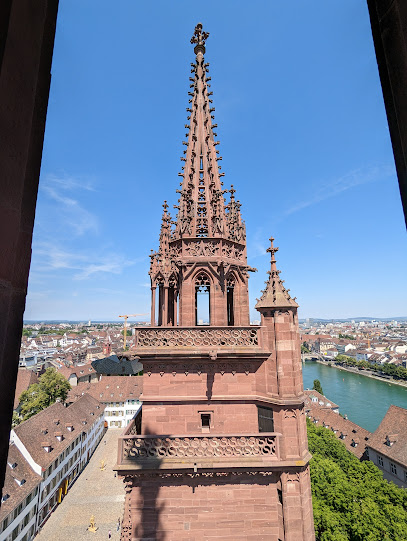
Mittlere Brücke
Discover the Mittlere Brücke in Basel, a historical bridge that connects cultures and offers stunning views of the Rhine River and the vibrant city life around it.
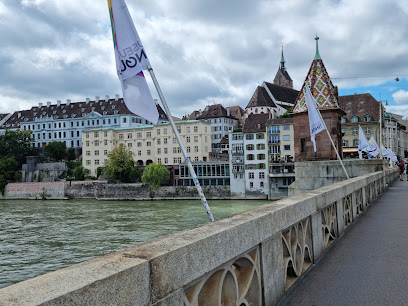
Spalentor
Explore Spalentor, Basel's stunning medieval gate, a perfect blend of history, architecture, and vibrant local culture.
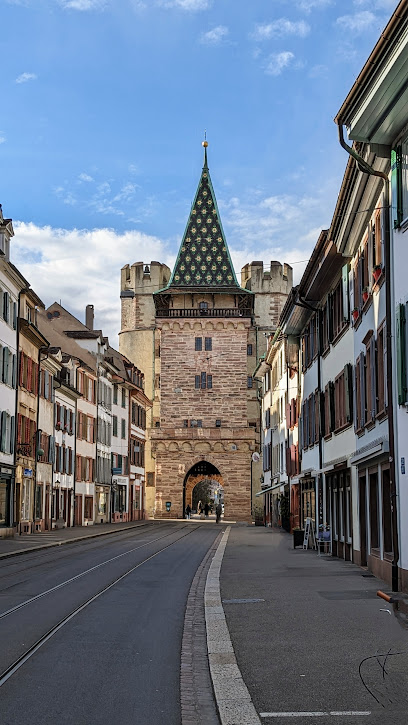
Basler Pfalz
Explore the breathtaking views of Basel from Basler Pfalz, the iconic observation deck offering stunning panoramas of the Rhine and cityscape.
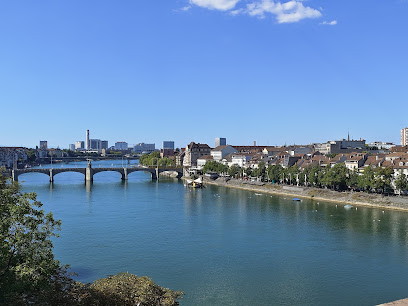
Basel Historical Museum - Barfuesserkirche
Explore the depths of history at Basel Historical Museum - Barfuesserkirche, where culture and heritage intertwine in a unique historical setting.
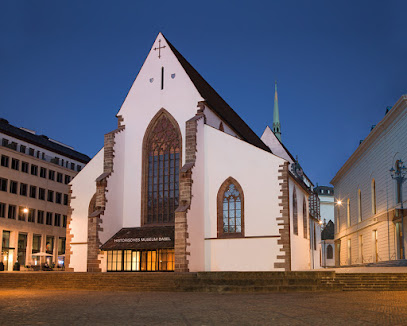
Minster Cathedral Square
Experience the rich history and stunning architecture at Minster Cathedral Square in Basel, Switzerland, where culture and beauty await every traveler.
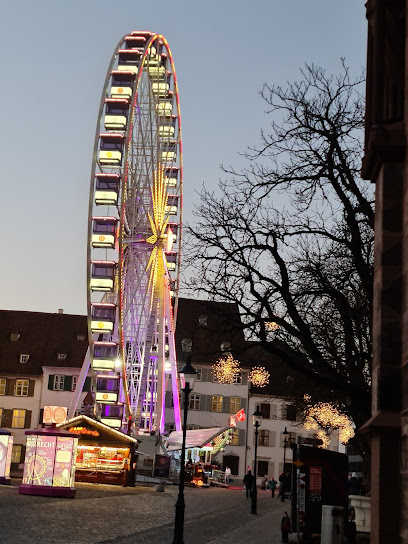
St. Johanns-Tor
Discover the rich history of Basel at St. Johanns-Tor, an iconic landmark connecting the past with the present in this vibrant city.
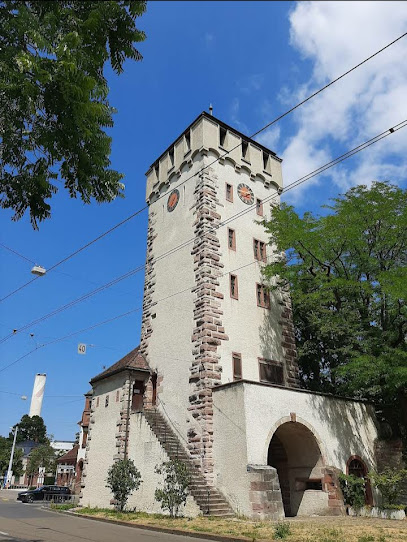
Strassburger Denkmal
Explore the Strassburger Denkmal, a historical monument in Basel that showcases the city's rich culture and artistic heritage, perfect for all travelers.
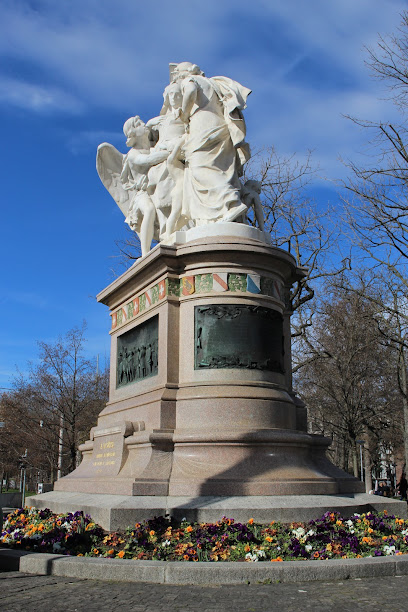
Labyrinthplatz Basel
Explore Labyrinthplatz Basel, a captivating tourist attraction blending art, history, and tranquility in the heart of the city.
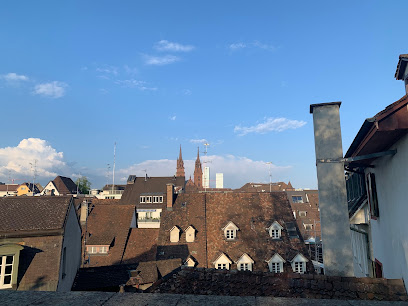
Leonhardskirchplatz
Explore Leonhardskirchplatz in Basel, a serene square rich in history, culture, and vibrant local life, perfect for a leisurely stroll and authentic experiences.
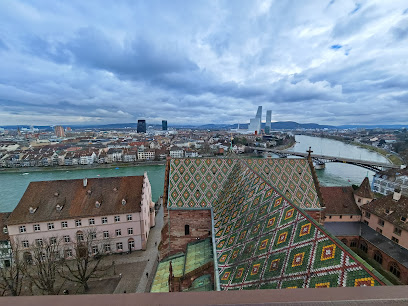
Unmissable attractions to see
Basler Münster
Explore the breathtaking beauty of Basler Münster, a Gothic cathedral that embodies Basel's rich history and cultural heritage.
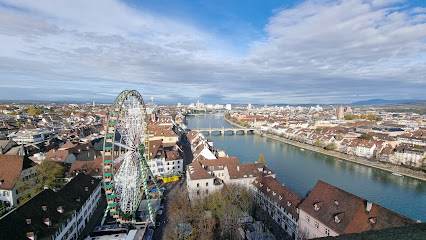
Mittlere Brücke
Explore the historic Mittlere Brücke in Basel, a stunning architectural gem connecting Switzerland, Germany, and France along the beautiful Rhine River.
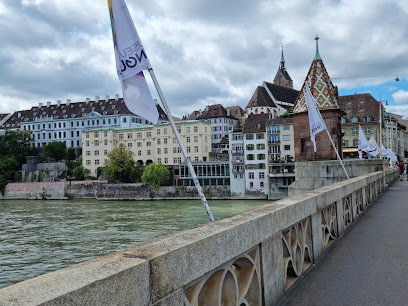
Tinguely Fountain
Discover the Tinguely Fountain in Basel, a mesmerizing blend of art and water, where playful sculptures and dynamic jets create an unforgettable experience.
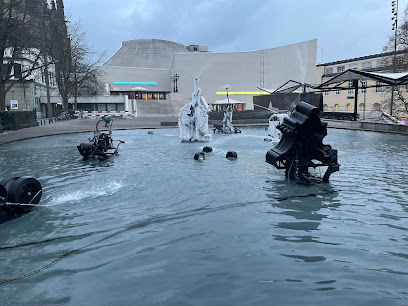
Fine Arts Museum Basel
Discover the rich heritage of art at Fine Arts Museum Basel, featuring masterpieces from the Renaissance to contemporary works in a stunning architectural setting.
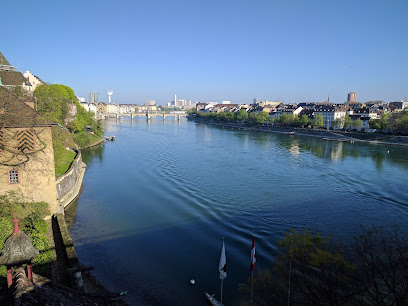
Spalentor
Experience the charm of Spalentor, Basel's historic city gate, a stunning landmark steeped in medieval history and architectural wonder.
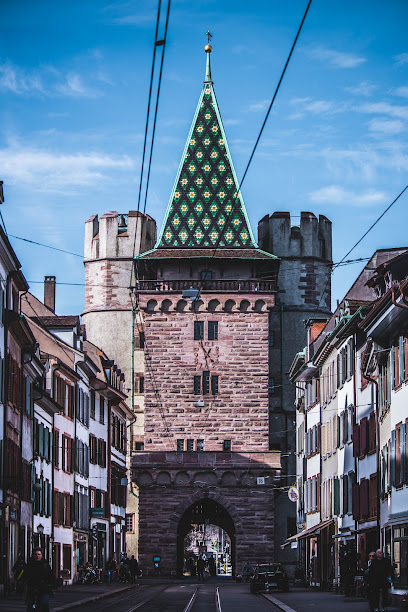
Museum Tinguely
Explore the whimsical world of kinetic art at Museum Tinguely in Basel, a tribute to the creativity of Jean Tinguely, surrounded by scenic river views.
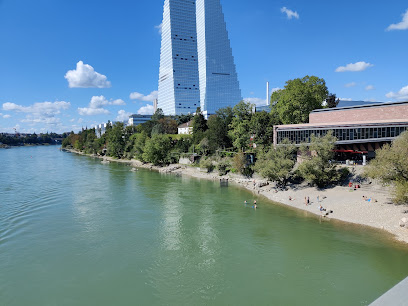
Basler Pfalz
Discover breathtaking views and serene moments at Basler Pfalz, an iconic observation deck along the Rhine River in Basel, Switzerland.
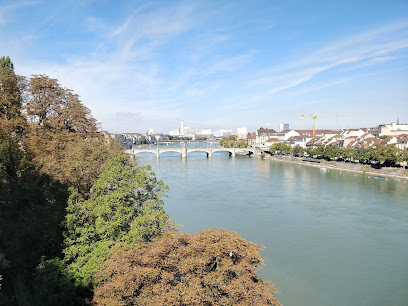
Basel Historical Museum - Barfuesserkirche
Discover the captivating history of Basel at the Basel Historical Museum - Barfuesserkirche, a stunning blend of architecture and cultural heritage.
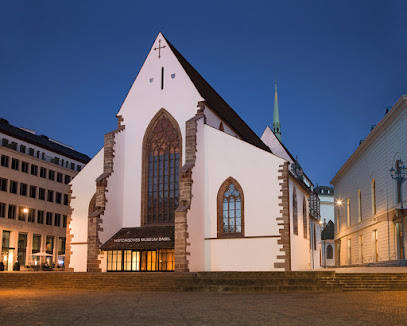
Essential places to dine
Gifthüttli
Experience authentic Swiss cuisine at Gifthüttli in Basel – where tradition meets flavor in a cozy setting.
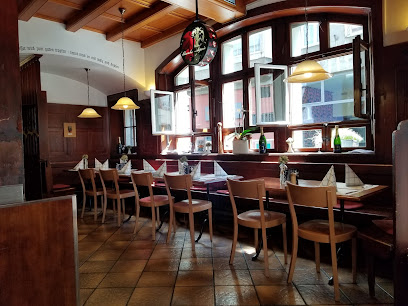
Schnabel
Discover authentic Swiss cuisine at Schnabel in Basel – where tradition meets innovation in every delicious bite.
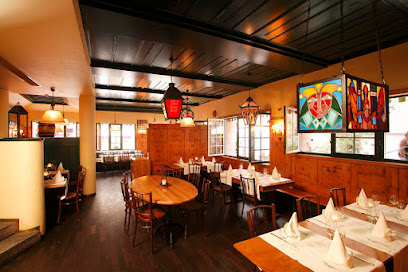
Schlüsselzunft
Indulge in authentic Swiss flavors at Schlüsselzunft – where tradition meets taste in the heart of Basel.
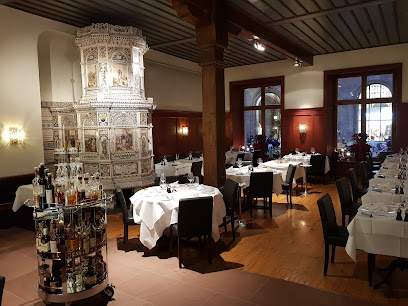
Bohemia Basel
Discover culinary excellence at Bohemia Basel - where Swiss tradition meets modern gastronomy in a stunning setting.
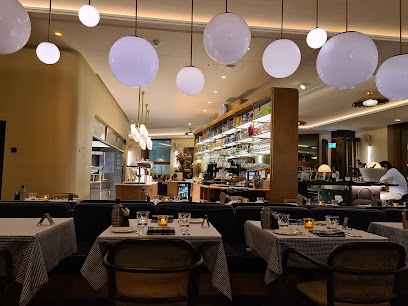
Restaurant Safran Zunft Basel
Experience exquisite Swiss cuisine and timeless elegance at Restaurant Safran Zunft Basel – a culinary gem in the heart of Switzerland.
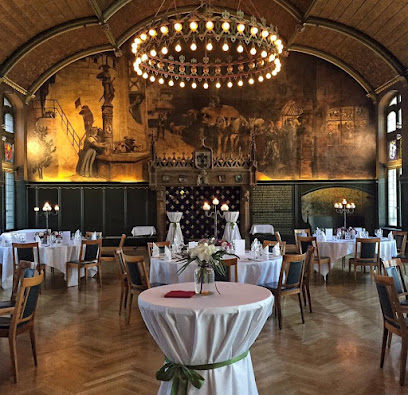
Coccodrillo
Experience authentic Italian cuisine at Coccodrillo in Basel - where tradition meets taste in every delicious bite.
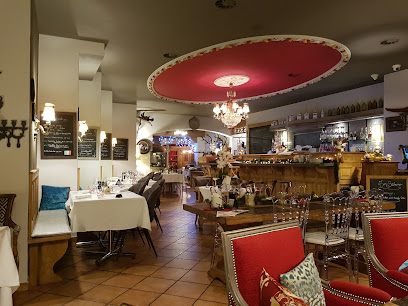
Nomad Eatery & Bar
Experience the vibrant flavors and cozy ambiance at Nomad Eatery & Bar in Basel – your perfect dining destination!
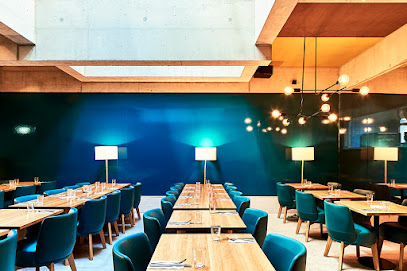
Roter Bären | Gourmet Restaurant & Bar
Experience the finest modern European cuisine at Roter Bären in Basel—where culinary artistry meets exceptional service.
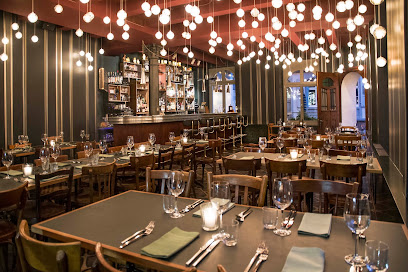
L'Unique | House of Rock
Experience the best of Italian cuisine intertwined with rock culture at L'Unique in Basel – where every meal is a celebration.
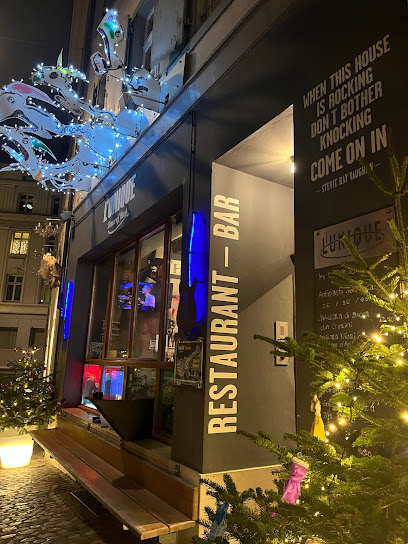
Restaurant Bel Etage (im Teufelhof)
Experience exquisite Haute French cuisine at Restaurant Bel Etage in Basel, where modern elegance meets culinary artistry.
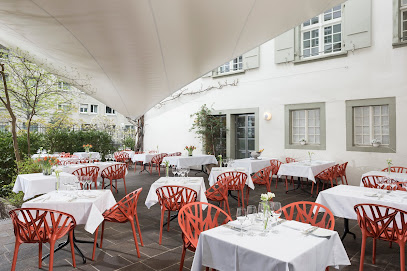
Markets, malls and hidden boutiques
Flying Tiger Copenhagen
Explore the playful and imaginative offerings at Flying Tiger Copenhagen, a must-visit gift shop in Basel packed with unique and affordable treasures.
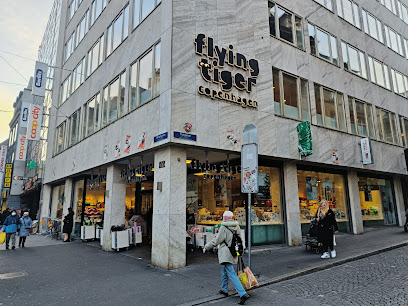
Metro Boutique Basel
Explore Metro Boutique Basel for a unique shopping experience, featuring chic clothing and accessories for the whole family in a stylish setting.
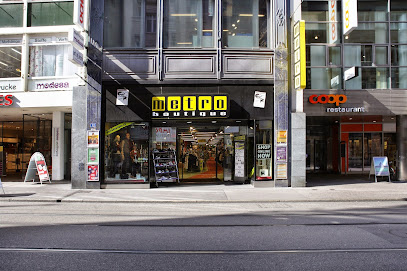
Søstrene Grene
Explore creativity and inspiration at Søstrene Grene, Basel's favorite shop for art supplies and unique decor.
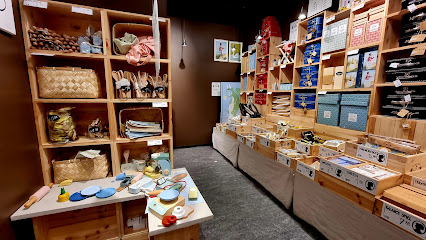
LACOSTE Basel
Explore LACOSTE Basel, your go-to destination for stylish clothing, accessories, and footwear in the heart of Switzerland.
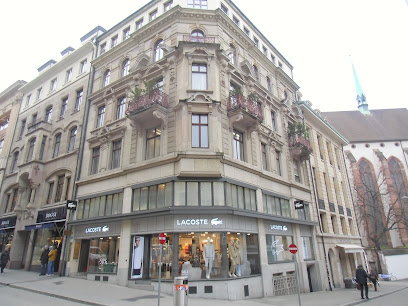
JOYNE - www.joyne.com
Experience the charm of JOYNE in Basel – a unique gift shop and café offering Swiss craftsmanship and delightful treats in a cozy atmosphere.
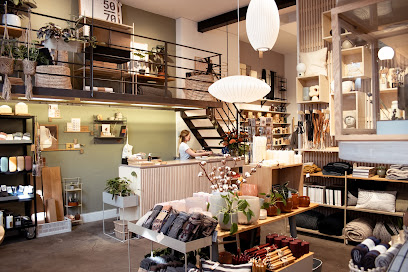
Tarzan Store Basel
Explore the creative world of Tarzan Store Basel, a boutique filled with unique fashion accessories and designer treasures, perfect for every fashion lover.
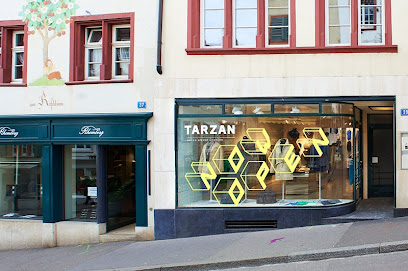
Montblanc Boutique Basel
Explore Basel's Montblanc Boutique for exceptional luxury goods, including fine jewelry, leather accessories, and precision-crafted writing instruments.
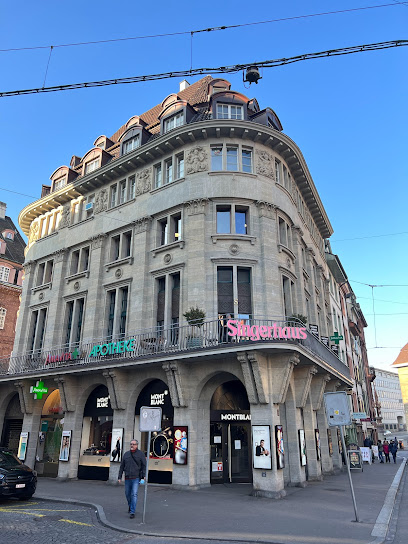
Ethno-Art GmbH
Explore a treasure trove of handcrafted jewelry and exotic goods at Ethno-Art GmbH, a must-visit gift shop in Basel, Switzerland.
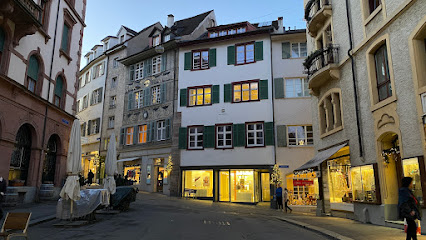
THREE Shop Basel
Discover unique fashion at THREE Shop Basel - a trendy clothing store offering a curated collection of stylish apparel and accessories.
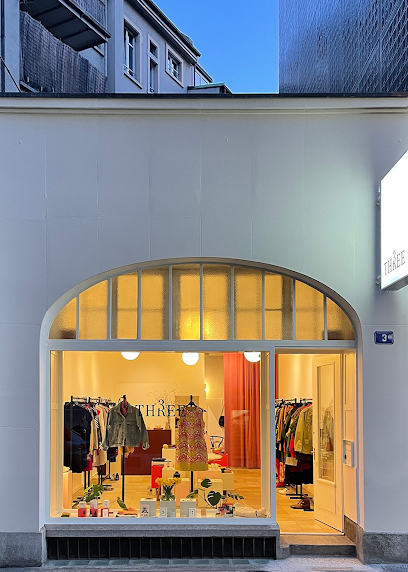
ISSUE Design Basel
Explore ISSUE Design Basel, where fashion meets creativity in a unique boutique experience filled with exclusive clothing and accessories.
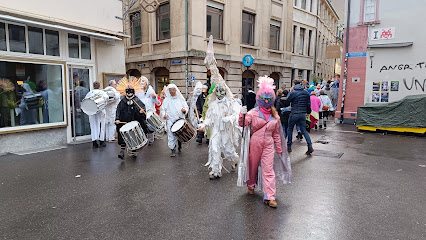
Essential bars & hidden hideouts
Sandoase
Discover Sandoase in Basel: a riverside bar offering refreshing drinks and vibrant ambiance, perfect for unwinding after a day of exploration.
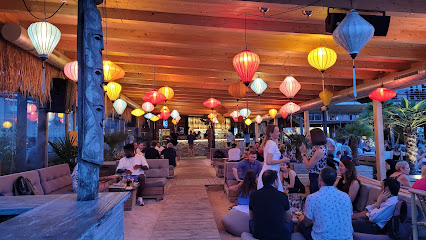
Flanagan's
Experience the vibrant culture of Ireland at Flanagan's in Basel, where traditional dishes meet a lively atmosphere and friendly service.
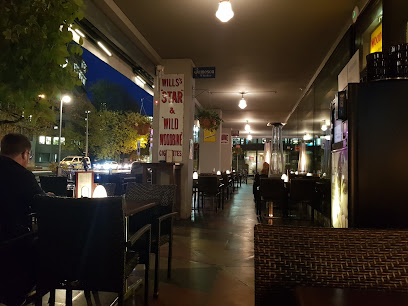
soho basel Bar & Club
Experience Basel's nightlife at Soho Basel, a stylish bar and club offering vibrant ambiance, diverse drinks, and unforgettable entertainment.
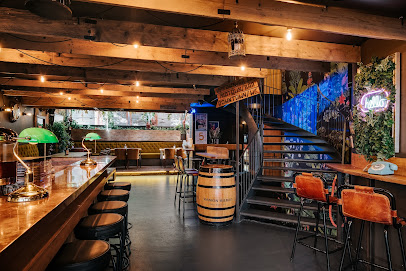
Hinz & Kunz Bar
Experience the best cocktails, whisky, and rum in Basel at Hinz & Kunz Bar, where elegance meets exceptional service.
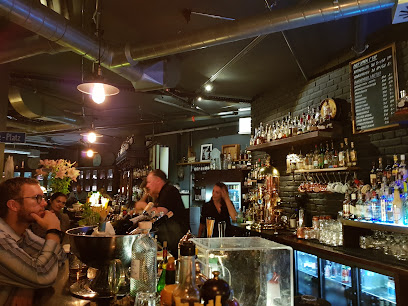
Valhalla Bar Basel
Experience the vibrant nightlife of Basel at Valhalla Bar, where delicious grilled cuisine meets live rock music in an unforgettable setting.
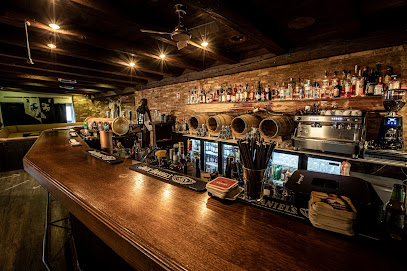
Irrsinn Bar
Experience the vibrant nightlife of Basel at Irrsinn Bar, where innovative cocktails meet a lively atmosphere for an unforgettable evening.
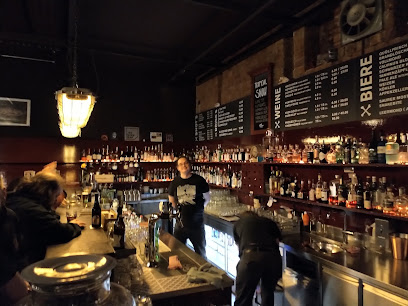
The Pub
Experience the taste of Britain at The Pub in Basel, where cozy atmosphere meets delicious cuisine and a fantastic selection of drinks.
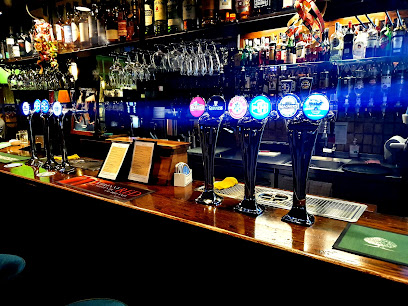
Baragraph
Experience the vibrant nightlife of Basel at Baragraph, where exquisite drinks meet a lively atmosphere perfect for tourists.
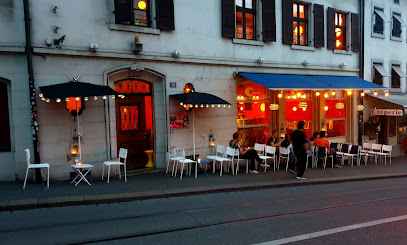
L'Unique | House of Rock
Experience the best of Italian cuisine and live rock music at L'Unique | House of Rock, a must-visit cultural gem in Basel.
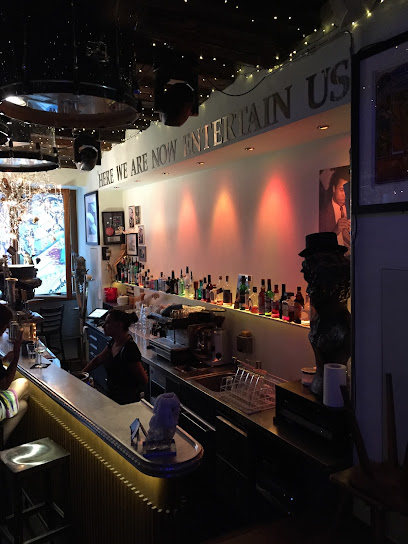
Blaupause - Cocktailbar
Experience the artistry of mixology at Blaupause, Basel's premier cocktail bar, where creativity meets taste in every drink.
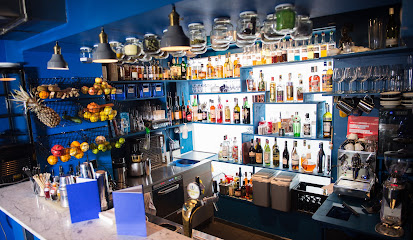
Local Phrases
-
- HelloGrüezi
[grew-e-tsee] - GoodbyeUf Widerluege
[oof vee-der-loo-geh] - YesJa
[yah] - NoNei
[nye] - Please/You're welcomeBitte
[bi-teh] - Thank youMerci
[mehr-see] - Excuse me/SorryEntschuldigung
[ent-shool-dee-goong] - How are you?Wie goht's?
[vee gohts] - Fine. And you?Guet. Und du?
[gweet. oont doo] - Do you speak English?Redsch du Englisch?
[redsh doo ang-gleesh] - I don't understandIch verstehe nicht
[eesh fer-shteh-eh neecht]
- HelloGrüezi
-
- I'd like to see the menu, pleaseChönnti bitte d'Karte gseh?
[chern-tee bi-teh dah-kar-teh g-zay] - I don't eat meatIch esse kein Fleisch
[eesh ess-eh kine flysh] - Cheers!Proscht!
[proh-sht] - I would like to pay, pleaseChönnti bitte zahle?
[chern-tee bi-teh zah-luh]
- I'd like to see the menu, pleaseChönnti bitte d'Karte gseh?
-
- Help!Hilf!
[hilf] - Go away!Gang wäg!
[gahng vehg] - Call the Police!Ruef d'Polizei!
[roo-ef dah-poh-lee-tsey] - Call a doctor!Ruef e Dokter!
[roo-ef eh dok-ter] - I'm lostIch ha mich verlore
[eesh hah meesh fer-loh-reh] - I'm illIch bin krank
[eesh been krunk]
- Help!Hilf!
-
- I'd like to buy...Ich möcht ... koufe
[eesh merkht ... koo-fuh] - I'm just lookingIch lueg nume
[eesh loo-eg noo-meh] - How much is it?Wie viel koscht das?
[vee feel koh-sht duss] - That's too expensiveDas isch z' teuer
[duss ish tsoo toy-eh] - Can you lower the price?Chönntsch den Priis drücke?
[chern-tsh den prees droo-kuh]
- I'd like to buy...Ich möcht ... koufe
-
- What time is it?Wieviel Uhr isch es?
[vee-veel oor ish es] - It's one o'clockEs isch eis Uhr
[ess ish ize oor] - Half past (10)Halb (zä) ab zehn
[halb zeh ab zehn] - MorningMorga
[mohr-guh] - AfternoonNamittag
[nah-mit-tahg] - EveningAbig
[ah-beeg] - YesterdayGestern
[ges-tern] - TodayHüt
[hoot] - TomorrowMorn
[mohrn] - 1Eis
[ize] - 2Zwei
[tsvye] - 3Drei
[dry] - 4Vier
[feer] - 5Fünf
[foonf] - 6Sechs
[zeks] - 7Sieben
[zee-ben] - 8Acht
[ahkt] - 9Neun
[noyn] - 10Zehn
[tsehn]
- What time is it?Wieviel Uhr isch es?
-
- Where's a/the...?Wo isch...
[voh ish] - What's the address?Was isch d'Adress?
[vahs ish dah-dress] - Can you show me (on the map)?Chasch mir das zeige (uf em Plan)?
[chah-sh meer duss tsey-guh oof em plahn] - When's the next (bus)?Wänn fahrt dr nächscht (Bus)?
[vann fahrt der naykst boos] - A ticket (to ....)E Billet (nach ....)
[eh bee-let nahkh]
- Where's a/the...?Wo isch...
History of Grossbasel
-
Grossbasel, situated on the left bank of the Rhine River, traces its roots back to Roman times. The area was initially settled by the Romans around the 1st century AD, establishing a strategic military and trading post known as Augusta Raurica. The remains of this settlement can still be seen today, showcasing its significance in the region's early history.
-
During the 9th century, Grossbasel began to emerge as a significant urban center. The construction of the Basel Minster in the 11th century marked a pivotal moment in the district's development. This Gothic cathedral, built atop the remains of an earlier church, became a symbol of the city's power and influence, attracting both pilgrims and scholars.
-
Grossbasel was at the forefront of one of the most important ecclesiastical events in European history—the Council of Basel (1431-1449). This council aimed to reform the church and address various theological disputes, drawing representatives from across Europe. The event highlighted Grossbasel's significance as a center of religious and political discourse during the late Middle Ages.
-
The Renaissance period brought a flourishing of culture and intellect to Grossbasel in the 15th and 16th centuries. The establishment of the University of Basel in 1460, one of the oldest in Switzerland, catalyzed the growth of humanist thought. Notable figures, such as Erasmus of Rotterdam, contributed to the academic and cultural landscape of the neighborhood, solidifying its role as a hub of learning.
-
The 19th century saw significant industrial growth in Grossbasel, particularly along the Rhine River. The construction of railways and factories transformed the area into a bustling industrial center. This period also witnessed the rise of new neighborhoods and infrastructure, accommodating the influx of workers and their families, fundamentally altering the social fabric of Grossbasel.
-
Today, Grossbasel is celebrated for its rich cultural heritage, with numerous museums, theaters, and art galleries. The annual Basel Art Museum exhibition and the Basel Fasnacht carnival exemplify the neighborhood's vibrant cultural scene. The preservation of historical sites, such as the Old Town with its medieval buildings, reflects the community's commitment to maintaining its historical identity amid modern urbanization.
Grossbasel Essentials
-
Grossbasel is easily accessible from other neighborhoods in Basel. You can reach it via the Basel SBB train station, which connects to various Swiss cities and neighboring countries. If you're coming from Kleinbasel, simply cross the iconic Mittlere Brücke (Middle Bridge) on foot or by bike, which provides a scenic view of the Rhine River. Public transport options like trams and buses operate frequently, making it convenient to travel to and from Grossbasel.
-
Grossbasel is well-served by public transport, with numerous tram and bus lines running throughout the area. The Basel tram system is efficient, with stops at major attractions like the Kunstmuseum and the Basel Minster. Bicycles are a popular mode of transport; you can rent bikes through local services like Basel's bike-sharing program. Walking is also a great way to explore the charming streets and alleyways of Grossbasel.
-
Grossbasel is generally safe for tourists, but it is wise to take standard precautions. High-crime areas are rare, but it’s advisable to be cautious in less busy streets at night, especially around the train station. Keep personal belongings secure, and avoid displaying valuables in crowded places. As in any urban area, being aware of your surroundings is key.
-
In case of emergency, dial 112 for immediate assistance. The local police station and medical facilities are available in Grossbasel. It is advisable to have travel insurance that covers medical emergencies. For minor health issues, pharmacies are located throughout the neighborhood where you can get over-the-counter medications.
-
Fashion: Do dress comfortably but respectfully, especially when visiting religious sites. Avoid overly casual attire. Religion: Do respect local customs and traditions. When visiting churches, dress modestly and cover your shoulders. Public Transport: Do be polite and give up your seat for elderly passengers. Don’t eat or drink on public transport. Greetings: Do greet people with a friendly 'Grüezi' (hello) or a handshake. Eating & Drinking: Do try local Swiss specialties and enjoy meals at outdoor cafes. Don’t tip excessively; service charges are typically included in the bill.
-
To experience Grossbasel like a local, visit the daily markets, such as the Marktplatz, where you can buy fresh produce and local delicacies. Engage with local vendors and don't hesitate to ask for recommendations. Attend a local festival or event to immerse yourself in the community’s culture. For a unique experience, take a leisurely walk along the Rhine River promenade, especially during sunset, and enjoy the vibrant atmosphere at the riverside bars and restaurants.
Nearby Cities to Grossbasel
-
Things To Do in Freiburg
-
Things To Do in Colmar
-
Things To Do in Bern
-
Things To Do in Zurich
-
Things To Do in Lucerne
-
Things To Do in Thun
-
Things To Do in Interlaken
-
Things To Do in Grindelwald
-
Things To Do in Murren
-
Things To Do in Strasbourg
-
Things To Do in Vevey
-
Things To Do in Montreux
-
Things To Do in Lausanne
-
Things To Do in Gamprin
-
Things To Do in Ruggell













